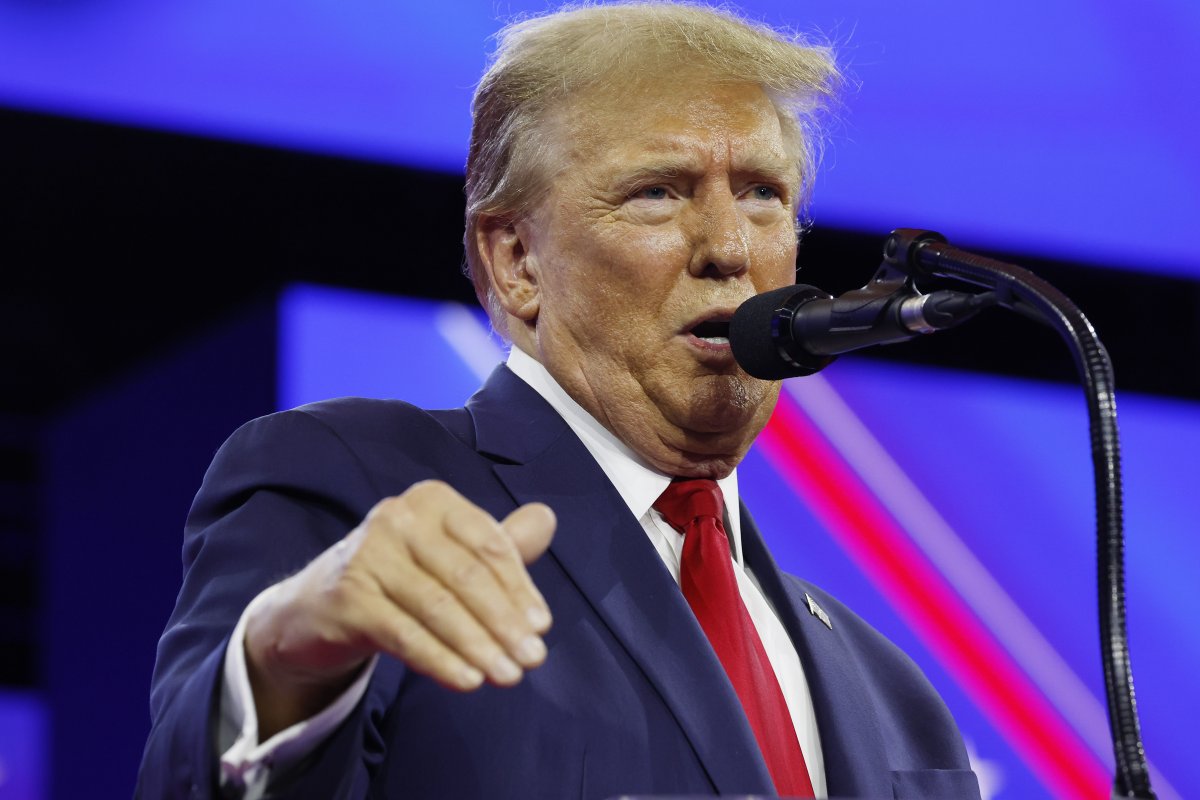Donald Trump gets a solution to his cash problem

[ad_1]
Donald Trump’s request to pause the $454 million judgment against him in his New York civil fraud case was denied on Wednesday, although an appellate judge ruled that the former president could use loans to post the full amount.
New York State Supreme Court Justice Arthur Engoron earlier this month found the former president and his company, The Trump Organization, liable for fraud over submitting false information about company assets to secure more favorable business loans and insurance policies. Trump’s two eldest sons, Donald Trump Jr. and Eric Trump, were also found liable alongside a handful of company associates.
Engoron ordered Trump to pay $355 million in fines plus prejudgment interest. The judge also barred the former president from serving as an officer of a New York company or taking out loans from financial institutions registered with the state for the next three years.

Anna Moneymaker/Getty Images
Trump’s defense team had asked a New York appeals court to halt the collection of his total judgment pending its appeal of Engoron’s decision, claiming that the ruling “would make it impossible to secure and post a complete bond.” Instead, the former president sought to post a $100 million bond for the time-being—a bonding company would be on the hook for any payout if Trump were to lose his appeal and is unable to pay.
Judge Anil Singh on Wednesday dismissed Trump’s request to pause collection of his total fine amount, but gave the former president a potential lifeline, staying the ban on him taking out loans in New York. Singh also paused Engoron’s ruling that bars Trump and his sons from running their company in the state.
Wednesday’s ruling means that Trump can apply for loans to help post his total bond amount. New York Attorney General Letitia James, who brought the original lawsuit against Trump and his company, had argued that the appeals court should deny Trump’s request, claiming that the former president “has insufficient liquid assets to satisfy the judgment.”
When reached for comment, a spokesperson with James’ office told Newsweek that Singh’s ruling grants what the attorney general wanted, which is that Trump and his co-defendants are required to post the bond in full.
If Trump fails to secure a bond for his $454 million judgment within 30 days of Engoron’s decision, James’ office can collect the total amount from him, which could result in the attorney general taking control of the former president’s bank accounts and even his New York properties.
Trump has claimed that Engoron’s ruling is a form of “election interference” against his presidential reelection campaign and has repeatedly denied the accusations in James’ original suit, calling the attorney general “corrupt.”
Uncommon Knowledge
Newsweek is committed to challenging conventional wisdom and finding connections in the search for common ground.
Newsweek is committed to challenging conventional wisdom and finding connections in the search for common ground.
[ad_2]